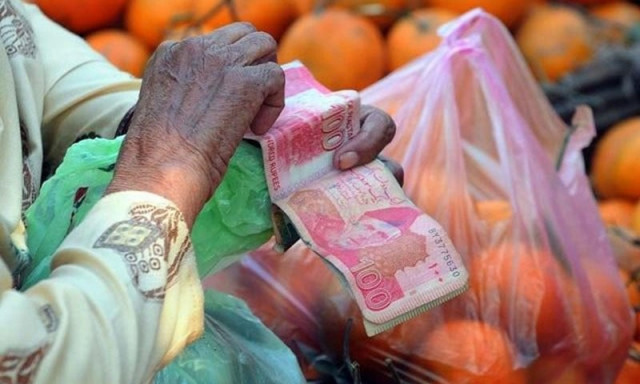Stagflation: a complicated situation for policymakers
Unemployment increasing along with acceleration in goods prices

Political temperature in Pakistan is on the rise owing to the lingering situation. The cat and mouse game keeps on increasing political turbulence. A temporary pause in dialogue between Pakistan and the International Monetary Fund (IMF) is also aggravating the economic situation. Political turbulence and the dialogue standoff are enhancing economic uncertainty.
The dwindling foreign exchange reserves, which are hovering around $4.6 billion, are also posing a significant challenge to the government, which has already imposed import curbs to maintain a minimal level of reserves.
Import curbs have slowed down the economy a great deal. A significant number of large-scale manufacturing plants are bound to shut down due to the shortage of raw material and intermediate inputs.
Pakistan’s economy is experiencing shortages owing to import dependence. The journey of import dependence increased when critics came down hard on the import substitution strategy and pushed for export-led growth.
Proponents of export-led growth could not anticipate the current situation. They have been maintaining this position since the 1990s when a policy shift was taken to orient the economy towards the so-called export-led growth.
Every now and then, these analysts find faults in import substitution and recommend tariff reforms.
Some analysts consider the export-led growth an easy way out of the current impasse. They are oblivious of the fact that business firms have to face tough competition where price and quality play a pivotal role. Price and quality competitiveness comes through learning by doing.
Learning by doing is achieved through an enormous amount of effort where business firms act in small steps. Then these steps are combined to achieve a mastery, which requires a lot of time.
Many firms normally fail to achieve this mastery. Hence, a few firms become successful in this vein.
Business firms have to plough back to expand and remain competitive in the globalised world. This requires industrial capitalists to focus on their core business and stay away from the speculative business activities.
However, the country’s industrial capitalists engage in real estate and other speculative activities. Even they invest their profits in buying stocks. These quick capital gains divert their attention from the core business.
That is the reason why a mushroom growth in housing schemes is being witnessed.
Housing schemes are still hitting the deck when the industrial growth is negative. The unplanned growth of housing schemes will have environmental and ecological consequences, which have started to create havoc for the metropolitan cities.
The cities are experiencing water, noise and air pollution. Green land is being converted into brown one in haste. There is a need to properly assess the cultivated area as food grains are not meeting the domestic needs.
In addition, there is a shortage of food grains, which is making them dearer day by day.
For instance, the support price of wheat was fixed at Rs2,200 per 40 kg in 2022, which has been jacked up to Rs4,000 per 40 kg in 2023 as the impact of devaluation of the rupee played a major role in it.
The expensive food grains increase the money wage of the working class. In a labour-intensive industry, high money wages make products expensive. As a result, expensive products lose their competitiveness in a tough competitive environment.
In short, the economy is experiencing stagflation where unemployment increases along with acceleration in prices. This is a complicated situation for the policymakers to address. Let us see how the government deals with this situation in the coming months.
THE WRITER HAS WORKED AS AN ASSISTANT PROFESSOR OF ECONOMICS AT SDSB, LAHORE UNIVERSITY OF MANAGEMENT SCIENCES (LUMS)


















COMMENTS
Comments are moderated and generally will be posted if they are on-topic and not abusive.
For more information, please see our Comments FAQ